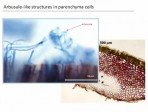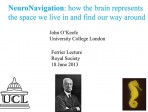 01:02:00
01:02:00
NeuroNavigation: how the brain represents the space we live in and finds our way around
Learning about new environments or locating ourselves in familiar environments are some of the most fundamental tasks that the brain performs. Information is not stored in response to biological needs such as hunger or thirst but on the basis of cogn....
More details | Watch now 00:47:00
00:47:00
From bench to bedside: KATP channels and neonatal diabetes
Whether you eat a whole box of chocolates or fast for the day, the pancreatic beta-cells ensure that your blood glucose level remains relatively constant by regulating the release of insulin from the pancreatic beta-cells. Diabetes results when insul....
More details | Watch now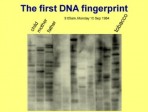 01:01:00
01:01:00
Genetic fingerprinting: past, present and future
Alec Jeffreys presents the origins of DNA fingerprinting through to the latest developments and their social impact
More details | Watch now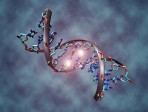 01:17:00
01:17:00
Genetics, epigenetics and disease
The human genome sequence has been available for more than a decade, but its significance is still not fully understood. While most human genes have been identified, there is much to learn about the DNA signals that control them. This lecture describ....
More details | Watch now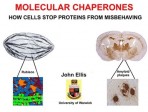 01:04:00
01:04:00
Molecular chaperones: how cells stop proteins from misbehaving
Proteins are the action molecules of all cells, and to function properly, protein chains must fold and assemble correctly. But each chain of every protein runs the risk that it will combine with one or more identical chains to form nonfunctional aggr....
More details | Watch now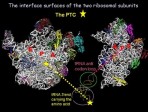 01:03:00
01:03:00
From bears’ winter-sleep to advanced antibiotics
Professor Ada Yonath, Weizmann Institute of Science, Israel. To facilitate instant recovery of active life once bears wake up from their winter sleep, nature provides ingenious mechanism based on periodic packing of their ribosomes, the cellular ma....
More details | Watch now 01:04:00
01:04:00
Nature’s glass: half-full or half-empty?
Andrew Balmford FRS is Professor of Conservation Science at University of Cambridge. The world’s governments failed to meet their pledge of reducing the rate of biodiversity loss by 2010. Wild populations, their habitats, and the benefits they pr....
More details | Watch now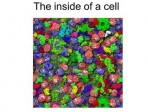 01:07:00
01:07:00
Finding patterns in genes and proteins: decoding the logic of molecular interactions
Dr Sarah Teichmann is based at the MRC Laboratory of Molecular Biology at the University of Cambridge. In the post-genomic era, high-throughput methods are providing us with a deluge of data about genes and proteins. What knowledge about biology do....
More details | Watch now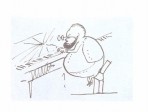 00:58:00
00:58:00
The Zoological World of Edward Lear
Clemency Fisher is Curator of Vertebrate Zoology at National Museums Liverpool. Edward Lear is most famous for his Nonsense Rhymes, such as “The Owl and the Pussycat” and “The Quangle Wangle’s Hat”, but he was also a talented zoological art....
More details | Watch now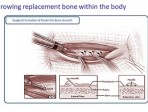 00:58:00
00:58:00
Regenerating organs and other small challenges
A disagreeable side effect of longer life-spans is the failure of one part of the body – the knees, for example – before the body as a whole is ready to surrender. The search for replacement body parts has fueled the highly interdisciplinary fiel....
More details | Watch now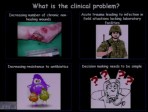 00:16:00
00:16:00
Using polymers to reduce bacteria in wounds
A research group provide details of their work in helping wounds to heal by developing polymers that will reduce the bacterial infections
More details | Watch now